Controversial nominees for positions in President Donald Trump’s Cabinet won major victories this week, as they received the support of senators expected to be key swing votes in their confirmations.
Two ex-Democrats, former Rep. Tulsi Gabbard and Robert F. Kennedy Jr., both advanced out of the committees they testified in front of last week with unanimous Republican support, likely setting up their confirmations next week in a full Senate vote. Vice President J.D. Vance, who had to rush to the Senate floor to cast the tiebreaking vote to confirm Defense Secretary Pete Hegseth, has taken a less public role in shepherding the nominations of Gabbard and Kennedy, but a persuasive one nonetheless.
With Vance’s vote needed to get one controversial nominee over the finish line, prospects looked grim for the nominees to be director of national intelligence and head of the Department of Health and Human Services (HHS). Sens. Susan Collins, Mitch McConnell, and Lisa Murkowski all voted against Hegseth. While they were unsuccessful in defeating him, it looked as though they were forming a new power bloc of GOP moderates that, with one additional Republican, could take down Cabinet picks to whom its members objected.
Uneven performances from Gabbard and Kennedy at their hearings bolstered that theory. Appearing before the Senate Intelligence Committee, Gabbard had to reassure Sen. Todd Young of Indiana, whom many thought could join the moderate block in voting her down. Young’s key concern as he interrogated Gabbard was her previous praise for Edward Snowden, who leaked classified information about the National Security Agency’s surveillance programs and fled to Russia in 2013. In total, senators on both sides of the aisle, Young included, asked Gabbard 10 times whether Snowden was a traitor, but her reply generally consisted of saying, “Edward Snowden broke the law.” That did not seem to satisfy Young, who told her: “It would befit you and be helpful to the way you are perceived by members of the intelligence community if you would at least acknowledge that the greatest whistleblower in American history, so-called, harmed American security.”
Kennedy also had difficulty with his responses to questions from Sen. Bill Cassidy of Louisiana, a physician considered a potential swing vote. In a hearing before the Senate Finance Committee, Cassidy probed Kennedy’s knowledge of health care financing, and the nominee stated incorrectly that the federal government was the only funder of Medicaid. Then, in a hearing before the Committee on Health, Education, Labor, and Pensions, which Cassidy chairs, the Louisiana senator took Kennedy to task over his well-documented skepticism of vaccines. By the end of the hearing, Kennedy had not satisfied Cassidy, who told him it would be a tragedy if someone who was “not vaccinated because of policies or attitudes you bring to the department” were to die during Trump’s administration.
That was the state of play heading into this week. It appeared that Democratic senators on the committees of jurisdiction could have enough Republicans join them to kill Gabbard and Kennedy’s chances of confirmation before they even got to the Senate floor.
But the chances of that happening began to dissolve Monday afternoon, when Collins, who sits on the Intelligence Committee, announced her support for Gabbard. Collins also had concerns about Snowden, and she said in a statement that Gabbard had addressed them in a private meeting, the committee’s open hearing, and its closed hearing. The next day, Young also announced he would vote to advance her. He made public a letter from Gabbard in which she committed to hold accountable anyone who makes an unauthorized disclosure of sensitive intelligence, review whether existing law is enough to deter someone from doing so, and refrain from making a recommendation about Snowden's legal standing.
While Young cited those commitments as the reason for his support, Vance was reportedly instrumental in securing his “yes” vote through conversations with the senator. However, Young downplayed the role speaking with administration officials had in his decision. “I had extensive conversations with a number of members of the administration and multiple other stakeholders, but mostly those conversations were an effort to elicit assurances from Ms. Gabbard about various concerns I had. Those assurances were delivered,” he told reporters.
The same day Young announced his decision, Cassidy threw his support behind Kennedy. After he made the announcement—in which he thanked Vance for having input in his decision—and voted to advance Kennedy out of the Finance Committee, reporters mobbed him as he emerged from the meeting in the Dirksen Senate Office Building, but he declined to answer questions then.
He proceeded to explain his reasoning in a speech on the Senate floor, reciting a list of commitments he said he secured from Kennedy. Among other promises, the two would meet or speak multiple times each month, Cassidy would have input in hiring health agency staff, and the Centers for Disease Control and Prevention would leave in place statements on its website saying vaccines do not cause autism. “If Mr. Kennedy is confirmed, I will use my authority as chairman of the Senate committee with oversight of HHS, to rebuff any attempt to remove the public’s access to life-saving vaccines without iron-clad, causational, scientific evidence that can be accepted and defended before the mainstream scientific community and before Congress,” he said.
After the speech, Cassidy would not discuss Vance’s specific role in his decision-making process, noting only that his conversations with the vice president were “very, very, very constructive.” He deferred to his speech in response to most questions but did explain further his thoughts on Kennedy’s qualifications for his role.
“Every HHS secretary brings certain strengths. Alex Azar knew a heck of a lot about pharmaceutical development, but probably not so much about NIH or something else, and he was always a pretty bright guy,” Cassidy told The Dispatch, referencing one of the HHS heads during Trump’s first term. “So, I'm willing to accept that the lieutenants, the sub-cabinet officials, will supply that information, if you will.”
The full Senate has not yet set a date to vote on Gabbard and Kennedy’s confirmation, but both now have strong chances of making it through. With the support of Young and Collins, Gabbard likely has the 51 votes she needs. The trio of Collins, McConnell, and Murkowski have not said how they will vote on Kennedy, but he presumably has 50 votes, enough to get a tie in the Senate that Vance would break. Murkowski on Thursday declined to answer The Dispatch’s questions about her thoughts on the nominees, but she did hint earlier in the week that Kennedy will likely have the votes.
“As you know, I have expressed the concerns that I had about his position on vaccines,” she told CNN. “I’m looking for—just to understand clearly his commitments there. But it certainly appears that he's moving closer to confirmation.”
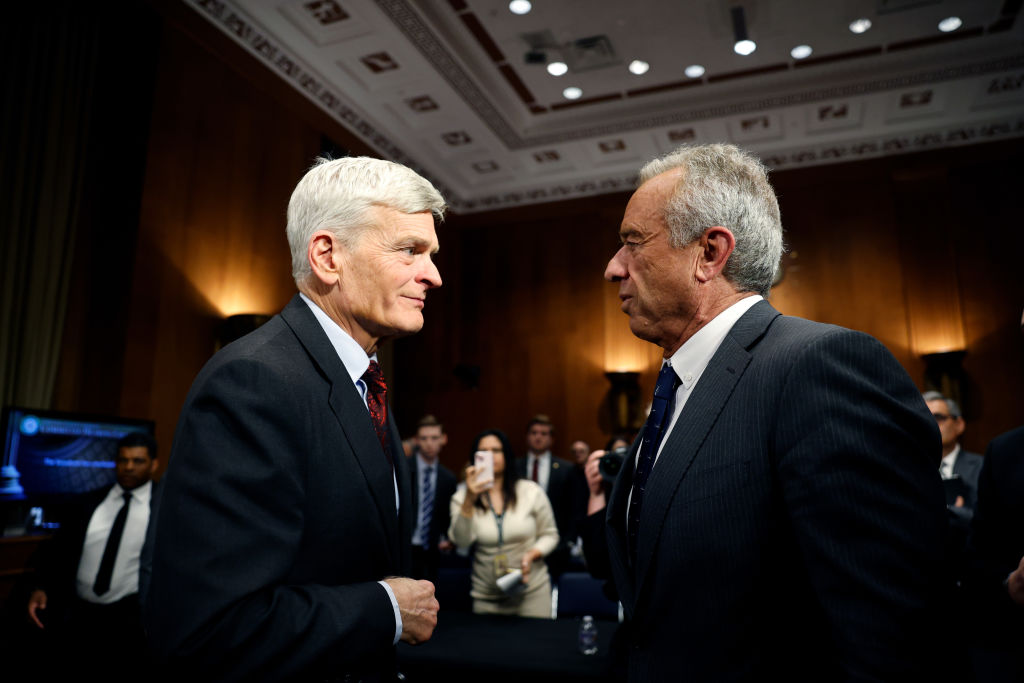

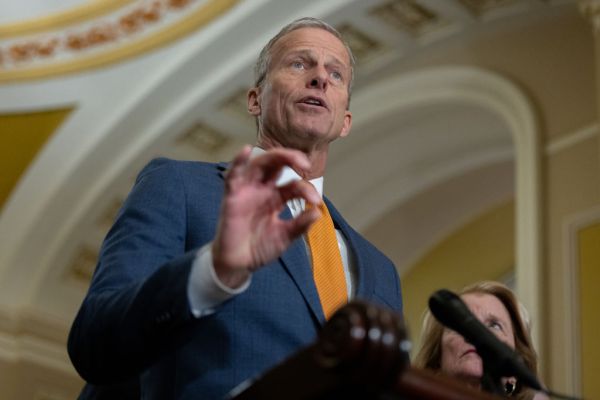
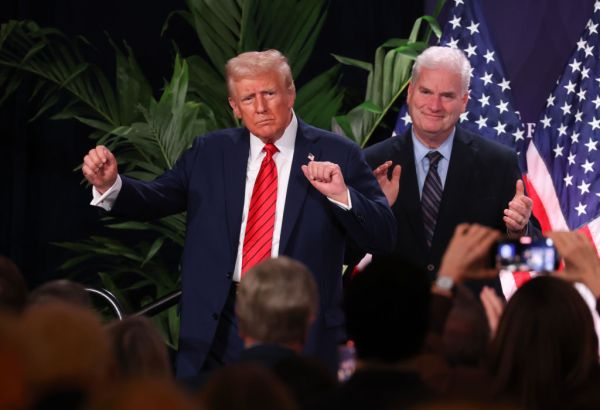
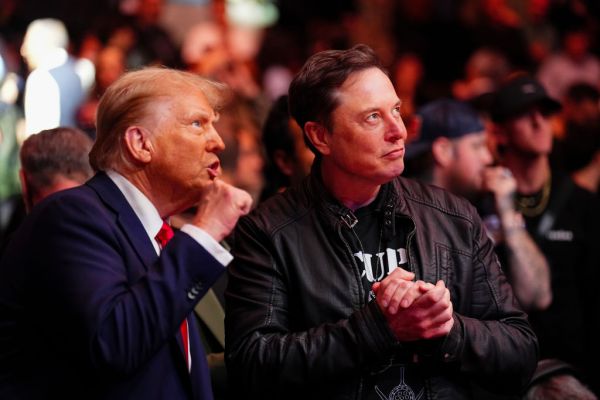

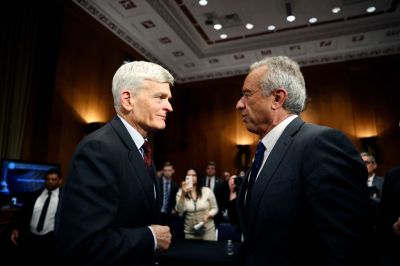
Please note that we at The Dispatch hold ourselves, our work, and our commenters to a higher standard than other places on the internet. We welcome comments that foster genuine debate or discussion—including comments critical of us or our work—but responses that include ad hominem attacks on fellow Dispatch members or are intended to stoke fear and anger may be moderated.
With your membership, you only have the ability to comment on The Morning Dispatch articles. Consider upgrading to join the conversation everywhere.